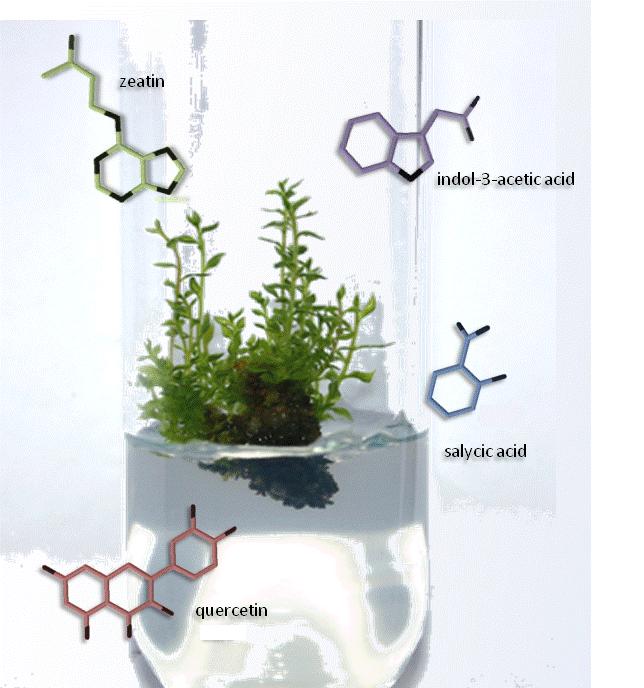Laboratory for Chemical Biology
Laboratory for Chemical Biology (LCB) is oriented to interdisciplinary research in the field of plant growth and development and its molecular regulation, as well as secondary metabolism.
Voditelj

Laboratory for Chemical Biology has a long term tradition performing research of bioactive molecules, primary plant growth regulators. In particular, we intend to correlate the physiological changes during vegetative and reproductive development to qualitative and quantitative hormone patterns, to differential gene expression, and to the activity of enzyme proteins involved in plant hormone metabolism. Furthermore, our aim is to gain insight into the mechanisms by which inorganic nitrogen, as an exogenous factor, regulates plant hormone levels and thus affects growth and morphogenesis. We also look for plant secondary metabolites, their biological potential and applications.
Laboratory for Chemical Biology is focused specifically on the next research directions that overlap:
- Hormonal Regulation of Plant Development (PI: Branka Salopek Sondi)
Important signaling molecules involved in the regulation of plant development, which directly impact crop productivity, are plant hormones. Among them, auxins trigger key processes of vegetative and reproductive developmental programs. Our aim is to investigate the regulation of auxin homeostasis during plant development, under abiotic and biotic stresses, with particular focus on reversible auxin conjugation as one homeostatic mechanism. Crosstalk between auxins and other hormones in mediating plant development will be also addressed. Fundamental knowledge about the mechanisms of auxin regulation allows manipulation of these processes and allows for progress in horticulture and plant biotechnology.
- Molecular Responses Underling Stress-induced Somatic Embryogenesis (PI: Snježana Mihaljević)
In plants, different stress conditions can induce competence and trigger somatic embryogeniesis, a model system comparable in many features to zygotic embryogenesis. It is hypothesized that the similarities in the morphogenic responses induced by distinct stresses reflect common molecular processes such as increased production of antioxidative defense compounds, and altered phytohormone metabolism and distribution, in interaction with cell cycle regulation. To verify this, we investigate transcriptional, enzymatic and metabolic changes that affect embryo development due to the available source of nutrition. Variations in nitrogen supply first affect mitotically active tissues and therefore have impact on the development of embryos and seeds. In addition, somatic embryogenesis, as an excellent cloning technique, has been used for the production of genetically improved plants.

